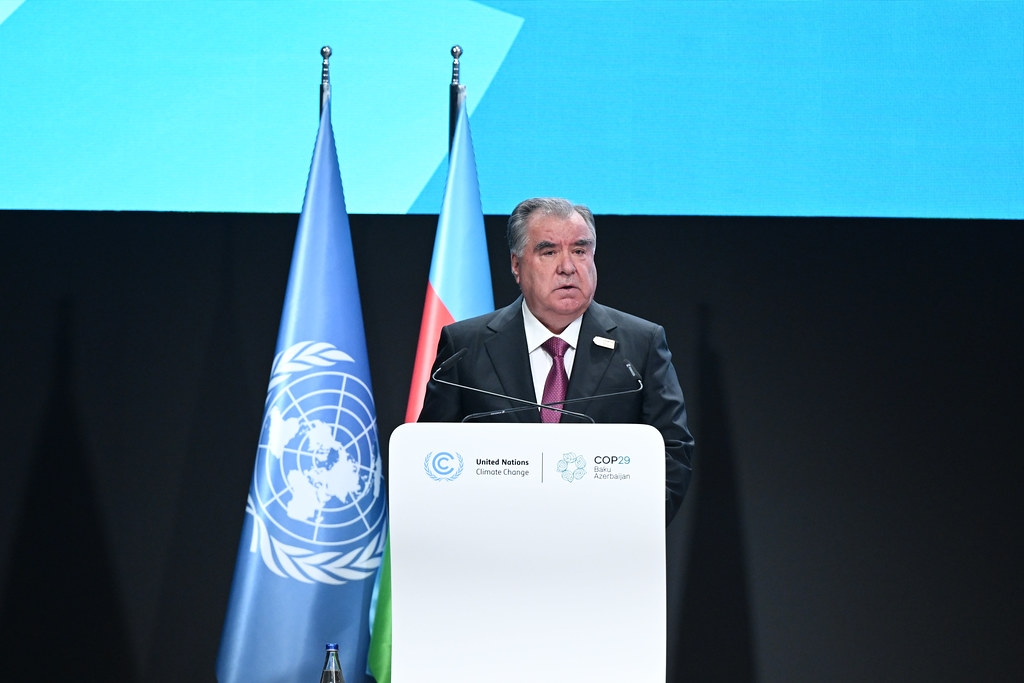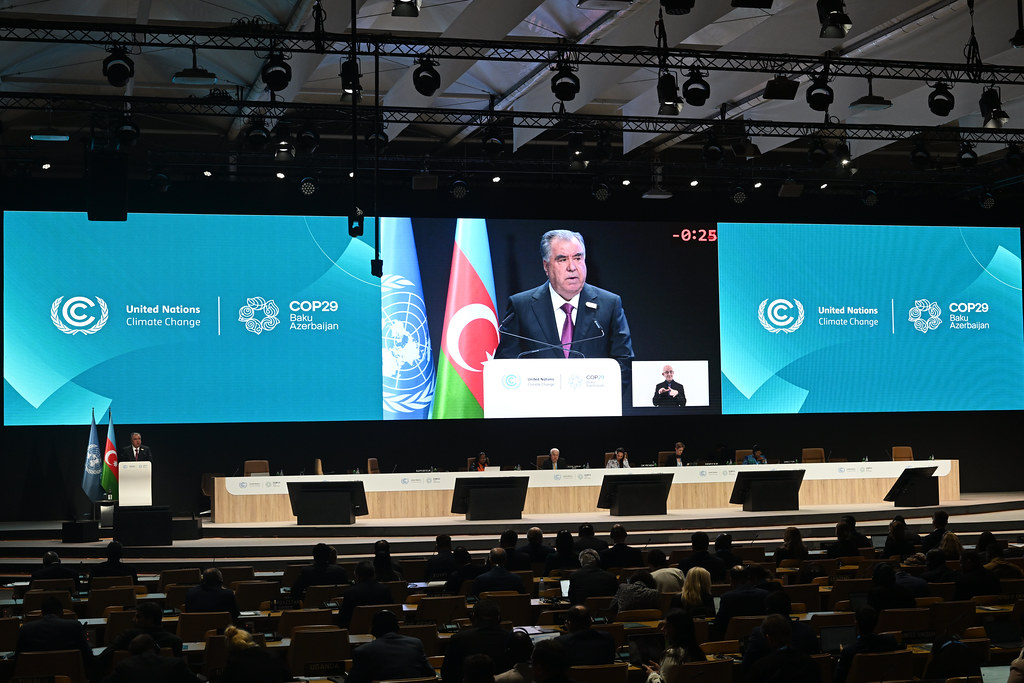Tajikistan has set goals to transition to a fully "green" economy, with plans to switch entirely to renewable energy production by 2032 and achieve its status as a green country by 2037. These targets were outlined by President Emomali Rahmon during his speech at the plenary session of the 29th Conference of the Parties to the UN Framework Convention on Climate Change (COP29) in Baku, where he emphasized the urgency of addressing global climate challenges.

“We are proud to say that 98 percent of our electricity is already generated through hydropower, which is clean, green energy. Furthermore, Tajikistan ranks 130th globally in terms of carbon emissions, reflecting our commitment to a low-carbon future,” President Rahmon stated.
He acknowledged the increasing global concern over climate change, highlighting that the last five years have been the hottest on record, with 2024 being recognized as the hottest year yet. Rahmon stressed the need for enhanced efforts to tackle climate change and mitigate its impacts.
The president also focused on the issue of melting glaciers, which is a direct consequence of rising temperatures. In his speech, Rahmon welcomed the adoption of the “Water Declaration for Climate Action” at COP29, noting its significance for addressing water and climate challenges globally.

Rahmon further reminded the audience of Tajikistan’s ongoing initiatives to preserve glaciers. He announced that 2025 would be declared the "Year of Glacier Preservation" by the UN General Assembly, an initiative led by Tajikistan. The country has also established a Trust Fund for Glacier Protection and is calling on international partners to contribute to its success.
Additionally, Tajikistan has played a key role in the global recognition of the importance of cryospheric science. Following the joint initiative with France, the UN General Assembly declared the period from 2025 to 2034 as the "Decade of Cryospheric Science."
To further strengthen international collaboration on glacier protection, President Rahmon proposed the establishment of a Regional Coordination Centre for Glaciology in Dushanbe, to be supported by the World Meteorological Organization. This center will serve as a hub for research, innovation, and cooperation in the field of glaciology and climate action.
Follow Daryo's official Instagram and Twitter pages to keep current on world news.
Comments (0)